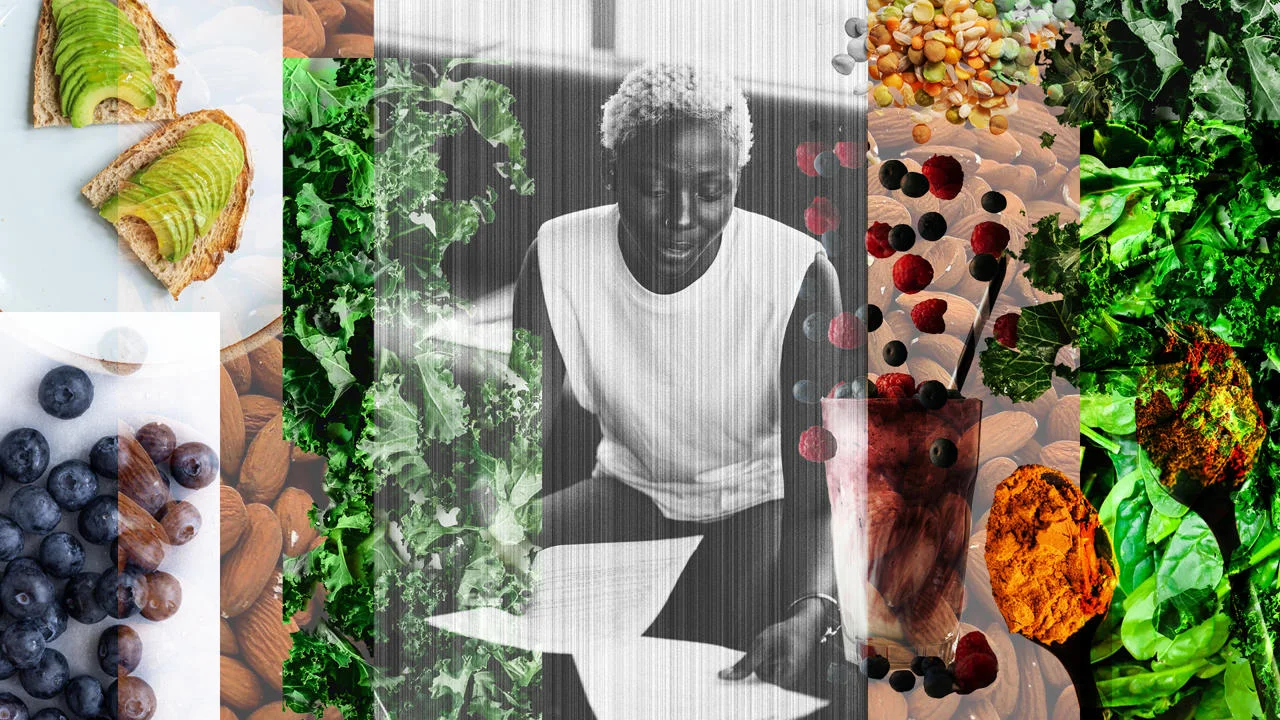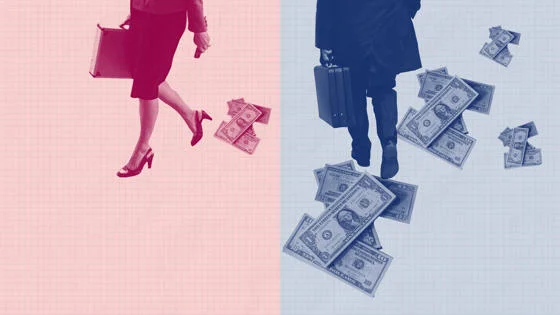What is life really like for a wellness entrepreneur?

Contents
“The queens of greens: the new wave of cooks proving healthy food can taste great”. So ran a headline in a 2015 issue of the Observer Food Monthly, one of a number of profiles at the time highlighting the women forging careers as wellness entrepreneurs. These women had more than just recipes and nutrition tips to share, they had an “ethos” - a mission to encourage us all to take up new habits and embrace a more holistic and health-conscious lifestyle.
Today, the idea that nutritious food can also be delicious is no longer considered novel, with the global health and wellness food market worth an estimated $124 billion, fuelled, in part, by the rise of Instagram, which offers a reachable, global audience alongside the promise that anyone with a smart phone can make it. But who are the people trying to build sustainable businesses in this arena? And what are the realities behind the inspirational blogs and posts – a marketing must for anyone trying to establish themselves as a wellness expert – for the entrepreneurs whose lives they appear to showcase?
In many cases women had left jobs requiring 60 hours plus a week only to have to commit 60 hours plus a week all over again.
What is a wellness entrepreneur? The rise of the “Queens of clean eating”
Dr Rachel O’Neill, Assistant Professor in the Department of Media and Communications at LSE, has been asking questions like this since becoming intrigued by the media fanfare surrounding women like Ella Mills, founder of the extraordinarily popular food blog and later brand, Deliciously Ella.
“I'm particularly concerned with wellness as it pertains to questions of food, diet, nutrition,” Dr O’Neill says. “There was a specific group of influencers-come-entrepreneurs who were elaborating various forms of healthy eating advice and who, around 2015, seemed to arrive on the cultural stage. I was interested in the media’s framing of them as figures to be looked up to, both in terms of the dietary and lifestyle advice they were offering, but also as entrepreneurs.”
To learn more about the wellness world and those trying to forge careers within it, Dr O’Neill attended events such as workshops, festivals and industry conferences, interviewing female founders as they connected with each other and tried to grow their businesses.
Gwyneth Paltrow - an outlier in this woman’s world
The wellness market is an overwhelmingly female arena – an industry for women, powered by women. Perhaps the most famous wellness entrepreneur of all is Gwyneth Paltrow, who stepped away from her acting career to build her lifestyle brand, Goop. Like Paltrow, many of those Dr O’Neill interviewed had left steady employment to focus on their building their businesses, although unlike the Hollywood actress, they did so without anything like her safety net of wealth and name recognition.
“Many of the women I spoke to had made the move from reasonable financial security, having been in employment with a regular wage or salary. Maybe not a good wage or salary - and in the vast majority of cases they had been working far in excess of their contracted hours - but nevertheless they generally had a certain level of security, because they were employed,” Dr O’Neill says.
One of the very powerful ideas they spoke of was this desire to start their own business in a female-defined space.
Why give up financial security for wellness insecurity?
Behind the potentially risky decision to leave steady employment was a shared belief that becoming wellness entrepreneurs would enable them to help others, says Dr O’Neill. "This wasn't simply an opportunistic, strategic business decision around profitability. The women I spoke to really believed in what they were doing, that this was something good not just for themselves but for other women, for public health in general, the environment, for developing less profit-driven business models - they felt they were doing good in a whole variety of domains,” she explains.
This idea that the wellness industry could offer a more supportive environment for women in business is reinforced by the way these entrepreneurs operate. Although all sole traders, Dr O’Neill reports a real sense of community amongst the women she interviewed and observed as they worked to build up their business, sharing advice and contacts, and often purchasing and promoting one another’s products as a show of support.
Alongside the motivation to create something beneficial to society, however, lay a darker reason that many had chosen to swap a steady wage for financial precarity. "One of the issues that came up a lot in my interviews was the difficulty women had in the areas in which they had previously been employed, across a range of domains, including fashion, finance, pharmaceuticals, PR and marketing,” she says. “They had all experienced sexism in the workplace and came across various stumbling blocks or barriers to career progression precisely because they were women.
"One of the very powerful ideas they spoke of was this desire to start their own business in a female-defined space. Many really championed the idea that wellness was going to be a positive force for change – the general assumption being: ‘This is a new industry. We're not going to be governed by those same old male standards in a male dominated sphere. We're going to create something new and work together and collaborate, even though we’re mostly sole traders’.
“I found a real optimism amongst those I interviewed about becoming an entrepreneur in this female-defined space. For many, after their previous experiences, that felt very exciting.”
Many of the women I spoke to described social media as the part of their job that they most disliked.
Does wellness have an image problem?
This strongly-held belief in the work they were doing may have helped carry women through what Dr O’Neill describes as extremely difficult times. Many of those she interviewed spoke of demanding workloads, deep financial struggles, and other pressures that were exacerbated by the nature of both the wellness industry and the social media platforms these influencers and entrepreneurs rely on.
“These businesses are typically run by just one, lone individual, working every aspect of the business – the recipe creation and testing, sourcing of produce and materials, actually preparing the product, managing the branding and PR, often even the delivery – everything. In many cases women had left jobs requiring 60 plus hours a week only to have to commit 60 plus hours a week all over again. And a lot of the women I spoke to were really struggling to make their businesses viable,” she says.
“In addition, the discourse and lexicon of wellness itself has to be aspirational – so whatever they might actual be experiencing or feeling, their social media content has to present an image of success or at the very least optimism. Many of the women I spoke to described social media as the part of their job that they most disliked. The reality is that the image we’re seeing online is not necessarily reflective of the kind of work going on behind the scenes and particularly how precarious their lives actually are.”
Even those established enough to have products on sale at high-end shops like Selfridges and Planet Organic found it hard to stay afloat, Dr O’Neill found. "Something I found particularly interesting was the experiences of a number of entrepreneurs with products in high profile shops,” she says. “That was something they were thrilled to have achieved – that their very small businesses that had maybe started as a market stall now had a spot in these prestigious shops. But that really belied how much they were struggling and even these opportunities weren't translating into financial success.
“In some cases, actually getting their products into these shops meant taking a loss. It was all about the visibility these opportunities offered – the brand being seen to be successful, desirable, and so forth – with the hope that the return will come later. But being sole traders, these women have very little power to set the terms with these stores.”
Scaling up the business – hitting the ceiling
This lack of power is also an issue when it comes to scaling the business, Dr O’Neill reveals. "Ultimately, there was a certain point where many women would come up against sexism once again,” she says. “These are women who have their own business, they're working for themselves or with other women, they're selling to women, engaging with women and yet, when they wanted to secure external investment, they suddenly found themselves the only woman in a room full of men.
“A number of my interviewees reported presenting their business at trade shows or food industry events and having men attending, who are corporate players, making sexist remarks. So even those who have gotten themselves into a position where they can pitch for investment – and many of these are young women, in their twenties – find they have to explain their business to men who may not understand, or may even look down on the wellness world.”
Dr O’Neill’s research highlights that industry outliers like Gwyneth Paltrow eclipse a far more diverse group of women working extremely hard to build their own businesses and develop the industry more broadly. While all are intent on supporting the wellness space as one created by and curated for women, whether or not they can break away from the masculine-focused culture of the wider business world is another matter.
Dr Rachel O'Neill was speaking to Jess Winterstein, Deputy Head of Media Relations at LSE.
Download a PDF version of this article




